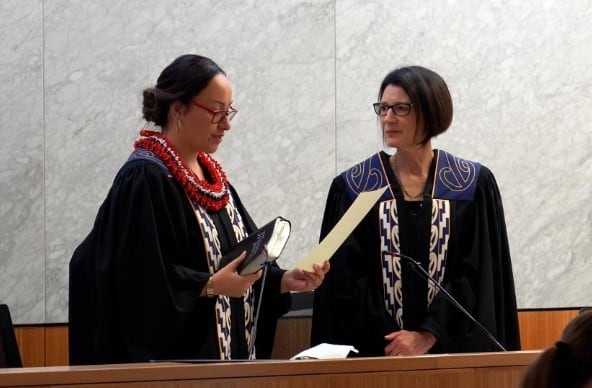The Pacific Lawyers Association is concerned Pacific women are the most discriminated against group within the legal profession in New Zealand.
The NZ Law Society has just released a new legal workplace survey which revealed Pacific people are three times more likely to face employment discrimination with Pacific women even more vulnerable.
Close to 2000 lawyers took part in the survey, as data found a negative impact on career prospects and mental wellbeing for pacific lawyers.
The findings show a repeat of a 2018 industry-wide survey to better understand the legal workplace environment.
The three highest rates of employment discrimination over the past three years in the legal profession are:
*Pacific women – 32 percent
*Pacific peoples – 28 percent
*Local government workplace – 25 percent
About 48 percent of respondents put employment discrimination down to their gender, 29 percent their age and 23 percent said it was because of their ethnicity.
“Family responsibilities, social background, and appearance also believed to be motives in employment discrimination,” the survey found.
It highlighted workplace bullying towards Pacific and (Asian) lawyers was prevalent, consistent with what was found in the follow-up 2023 survey.
Some results did show a decline in sexual harassment within law practices over the last five years, but reluctance to report sexual harassment “was an ongoing issue”.
Law Society chief executive Katie Rusbatch said “it is encouraging to see some signs of progress, although the survey shows there’s still a lot more work to do”.
“It is also concerning to see that work-life balance is lowest among Pacific people working in the legal community,” Rusbatch said.
Pacific Lawyers Association president Arti Chand said “to shift the dial the Pacific legal community needs to have a real voice where it counts”. “Lack of proper representation of Pacific lawyers” is problem that goes beyond gender diversity and it was about “reflecting the community all lawyers serve,” Chand said.
